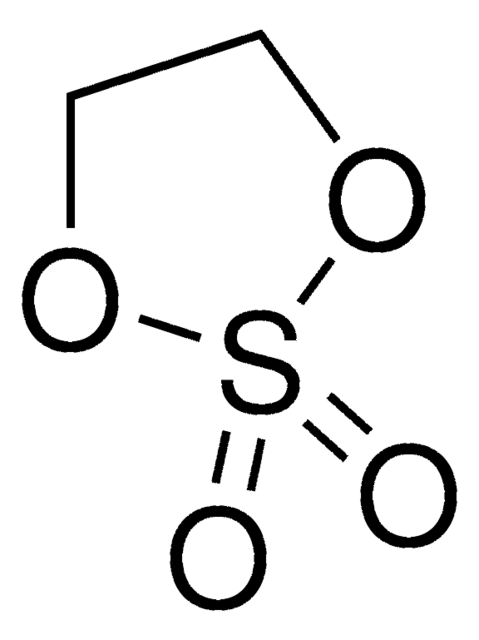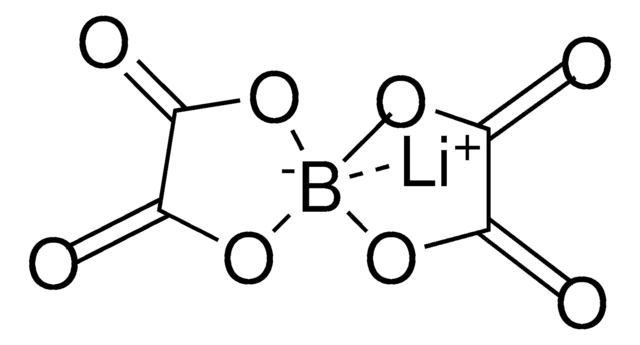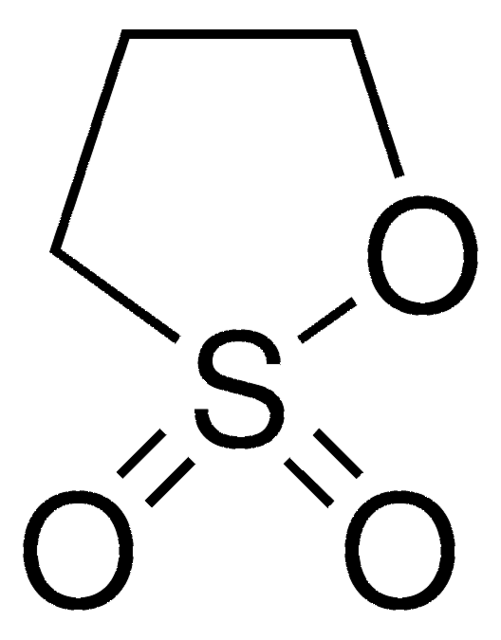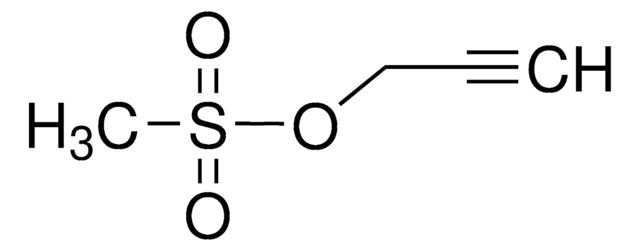901686
Fluoroethylene carbonate
battery grade, ≥99%, acid <200 ppm, anhydrous
Sinónimos:
4-Fluoro-1,3-dioxolan-2-one, FEC
About This Item
Productos recomendados
grade
anhydrous
battery grade
assay
≥99%
form
liquid
impurities
≤100 ppm H2O
≤200 ppm acid
bp
212 °C
mp
18-23 °C
density
1.485 g/cm3
application(s)
battery manufacturing
SMILES string
FC1COC(=O)O1
InChI
1S/C3H3FO3/c4-2-1-6-3(5)7-2/h2H,1H2
InChI key
SBLRHMKNNHXPHG-UHFFFAOYSA-N
¿Está buscando productos similares? Visita Guía de comparación de productos
General description
Application
Features and Benefits
✔ Improves Battery Safety
✔ Enhances Battery Performance
✔ Versatile Electrode Compatibility
Caution
- These electrolyte solutions have extremely low water content; please handle under inert and moisture free environment (glove box).
- Keep containers tightly closed. Keep away from heat and ignition sources. Store in a cool and dry place. Avoid storing together with oxidizers.
Legal Information
related product
signalword
Warning
hcodes
Hazard Classifications
Acute Tox. 4 Oral - Eye Irrit. 2 - Skin Irrit. 2 - Skin Sens. 1
Storage Class
10 - Combustible liquids
wgk_germany
WGK 1
flash_point_f
Not applicable
flash_point_c
Not applicable
Elija entre una de las versiones más recientes:
¿Ya tiene este producto?
Encuentre la documentación para los productos que ha comprado recientemente en la Biblioteca de documentos.
Los clientes también vieron
Contenido relacionado
Batteries, fuel cells, and supercapacitors rely on electrochemical energy production. Understand their operation and electron/ion transport separation.
Las baterías, las pilas de combustible y los supercondensadores dependen de la producción de energía electroquímica. Comprender su funcionamiento y la separación del transporte de electrones e iones.
Las baterías, las pilas de combustible y los supercondensadores dependen de la producción de energía electroquímica. Comprender su funcionamiento y la separación del transporte de electrones e iones.
Batteries, fuel cells, and supercapacitors rely on electrochemical energy production. Understand their operation and electron/ion transport separation.
Nuestro equipo de científicos tiene experiencia en todas las áreas de investigación: Ciencias de la vida, Ciencia de los materiales, Síntesis química, Cromatografía, Analítica y muchas otras.
Póngase en contacto con el Servicio técnico













